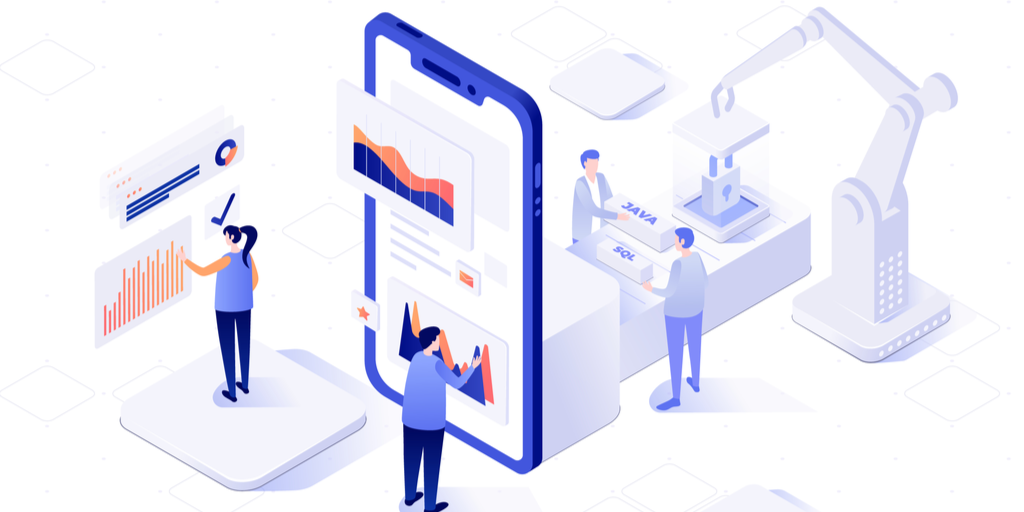Summary
Gaining customer feedback is an invaluable resource to ensure that you are successful with your go-to-market strategies.
No matter how amazing a marketing campaign is, if there isn’t a need for a developed product, the strategy may fall flat.
In this blog post, we tackle some of the misconceptions about getting customer feedback.
Quick Links
I don’t need customer feedback because, just like Ford said, “if I had asked people what they wanted, they would have said, faster horses.”
A CEO of a software company that I sat next to on an airplane once said to me. He then added, customers, don’t know what they want.
Do I Need Customer Feedback When Developing New Technology Products?
On the rare occasion that I happen to sit next to someone who isn’t living in an alternative technological universe, where watching reruns of Friends is more important than making friends in real life, I love to strike a conversation. Since I am in the marketing field, anytime I meet a business owner; they are likely to discuss their current marketing challenges.
In some cases, I don’t have any experience with the business owner’s industry. In those cases, our conversations tend to be a bit more general as I try to understand the person’s target audience.
In this case, however, I was lucky, I sat next to the CEO of an analytical company software provider that I will refer to as John.
As the conversation went on, John revealed that one of his biggest challenges is cross-selling add-ons to existing customers later on down the line.
It seemed as though, if the customer didn’t get the add-ons from the beginning, then it becomes quite tedious to try to convince them to get it later on.
Read Also: Proving Marketing ROI: Why Should I track Micro and Macro Marketing Metrics?
Why Customer Feedback Should be Important to the Software Team
As an inquiring mind, I asked to learn about how they developed those add-on solutions.
John mentioned that the software development team came up with the add-ons that they felt will be cool for customers because they noticed that others were not providing that service.
Which led me to naturally asking, “did you get feedback from your customers on if the add-ons that you were developing was something that they’d want to buy?
John smiled and said, “customers don’t always know what they want.”
Then he proceeded by adding the famous Ford quote, “if I had asked people what they wanted, they would have said, faster horses.”
Within minutes of having this conversation, I had uncovered that the reason why John’s customers were not buying the add-ons were not because they weren’t functional, or ‘cool,’ it’s because his customers didn’t have a need for them.
And why should they?
At no point were clients included in the development feedback process.
The jury is still out on whether Henry Ford made that statement or not. For this discussion, we’ll focus on the message behind the famous quote and not the validity of the quote’s author or the quote in general.
Validate Your ‘Cool’ Technology Ideas with Customer Feedback
If a technology company has the perception that customers do not know what they want so their feedback is not needed, they are setting themselves up for a gambling experience.
Sure, it’s possible that even without customer feedback, you can develop a product that your customers will love.
However, is it worth the resources to do so?
Going back to the saying about the faster horse concept, it hinges on the fact that customers cannot always envision a solution to a problem in the same way that solution inventors can.
You are the solution inventor, after all, for a reason.
Hypothetically, if Henry Ford had surveyed customers to find out the problems that they have with transportation, it’s likely that they could have mentioned the amount of time that it takes to get from one place to the other.
And it’s possible that if he had asked how they would solve the problem, then, if the customers are not as creative as Ford, they could have mentioned the faster horse.
What this outlines is that, the problem is not with asking for feedback in general, it’s about what type of information you are interested in gathering.
Center Your Software Customer Feedback on Problems and Not Solutions
Mostly, your customers won’t ask you for a faster horse, if you are not asking them to become the solution designer.
If you are simply asking them to talk about their problem today, they are not going to go into solution designer mode.
In addition to asking about the problem that they have, you may want to find out how they are solving the issue today.
Here’s why.
Problems that are not worth solving are not worth their spending.
If you have a problem but don’t spend time trying to solve the problem, then your pain isn’t extreme.
Meaning, you are more likely to find a software solution created to solve that problem as a nice-to-have and not a must-have.
Don’t Discount Super Users
Further, to tip the scales, not all customers are created equal.
Some customers are super users who may even know how to use your software solution better than employees at your company.
They could suggest the idea of a car and not a faster horse, if you were to go as far as letting them in the solution creation process.
A lot of software technology companies today, such as Salesforce, Microsoft, HubSpot, all have client sourced idea websites where customers get to share their solution ideas.
Clients submit and vote on ideas for the chance of inclusion in the software company’s development pipeline.
This process ensures that you are less likely to develop a solution when no one is asking for one.
But more importantly, it makes your customers feel valued as part of the solution creation process.






